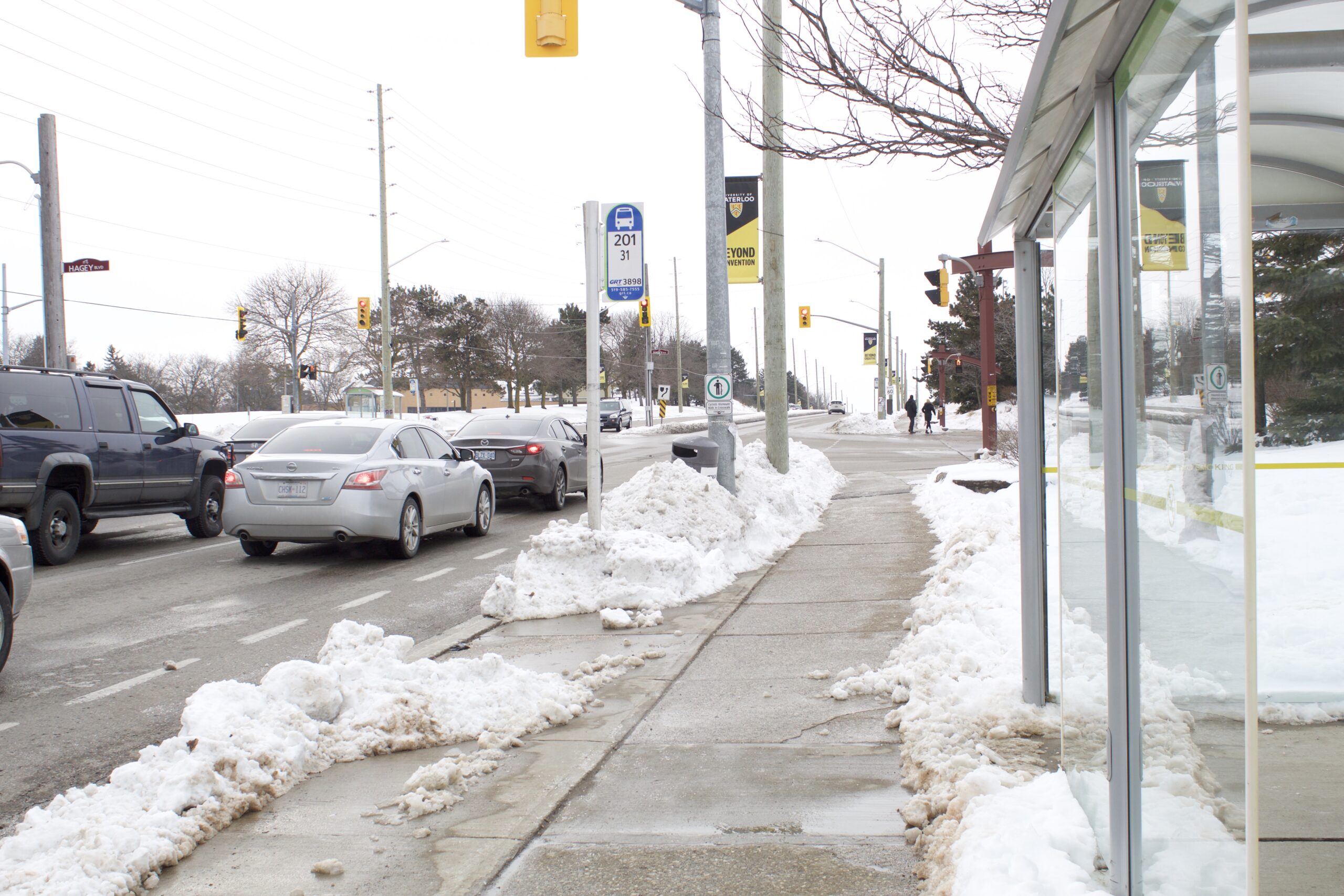The GRT strike has rocked the day-today life of students in the KW region.
Over 17,000 students are being affected daily, along with various other vulnerable sections of the region, including the disabled and new refugees.
Imprint asked five students how their lives have been affected in the wake of the strike.
All responses have certain commonalities, like the challenges faced while commuting back and forth from campus, yet each interviewee provided some unique perspectives.
Ola, a second year student of biomedical science stated that she was over thirty minutes late for numerous classes due to the distance between her home and campus. She also emphasized the cooperation between students for providing rideshares to those in need. Imprint found that numerous students with cars have stepped in on the Facebook rideshare pages, offering free rides to those in need.
Mahmood, an international student from Jordan, described the challenges of having to walk in the snow and being late for all of his classes— even missing a few of them. He insists holidays or reimbursement should be provided to those who own a GRT pass instead of having the school change its schedule entirely. Conestoga College has agreed to reimburse its full time students who have GRT passes (GRT term passes are not universal, but a termly $300 discounted pass) with up to $200 for transportation costs. In the wake of Conestoga College’s move to reimburse its students for transportation, it remains to be seen if such an action will be instituted by UW.
Athea, a first year student, described her struggles stemming from the GRT strike— having to walk in snow and taking longer than usual to reach class. She believed that the university should change its schedule because of the strike as it is not fair towards the students who are left without options to commute and live further from campus.

Hannah, another second year student, stated her struggles, as she happens to live a 20 minute walk from campus. According to Hannah, the sidewalks from her home to campus were also not shovelled, thereby making her rely on following the footprints left by people who walked before. It also represents a heightened health hazard, as one is at a constant risk of slipping on the ice and injuring themselves. Upon being asked if the school should change their schedule due to the strikes, Hannah insisted upon having professors understand the daily challenges faced by students in their commute and act accordingly (in terms of accomodations) rather than have the school entirely change its schedule.
Yasmeen, our last interviewee, provided some deep insights not only on the plight of students but also on the relatively newer Syrian refugees whom she deals with as a volunteer.
Speaking on her personal experiences, she acknowledged the delays the GRT strike caused her on numerous appointments and classes. She emphasized the need for professors to be accomodating in the wake of the strike and cooperate with students to make up for missed classes and participation, instead of having the school to change the schedule altogether (which according to her, was not practical).
More than herself, she was concerned with the well being of the young refugee families being adversely affected by the strike. Being an active translator for new refugees, she described an instance where she had to help a new family of five (including two young children) from Syria get car insurance. This family had to hire two Ubers every time they had to go somewhere for completion of documents and related tasks due to the maximum occupancy of car-for-hire rules.
The majority of refugees don’t have large amounts of disposable income that can be used on Ubers, often relying on government help initially while settling down.
Yet there are many families like the one described who are now being forced to rely on private (and expensive) modes of transportation such as Uber and taxis, because of the ongoing strike.
Students emphasized the need for professors to be more empathetic towards the plight of those without a car and recognize their efforts to make it to the classes, even if late due to weather and sidewalk conditions, rather than having the school entirely change its schedule. Students are missing out on classes, and those that do make the trek to campus have to face tricky conditions due to unshoveled sidewalks and winter conditions or pay for an Uber or cab.
Negotiations continued Tuesday as both the region and the union face pressure from residents trying to get around town.





























